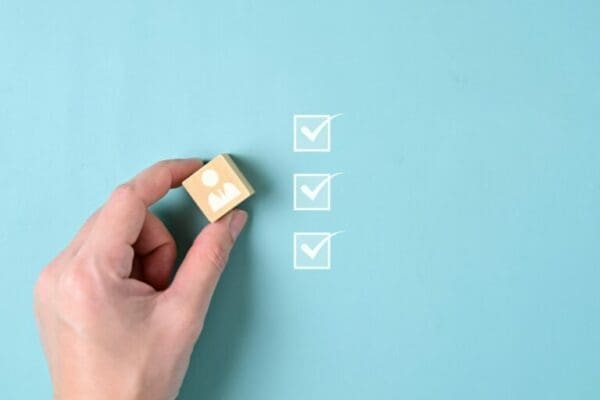What to expect from your mind when self-isolating for a long period, and how you can support your mental wellbeing when you’re physically distancing.
During the coronavirus, we are not just adapting our working styles to accommodate an unusual situation. This pandemic also requires us to physically detach from our networks and communities. If you’re not accustomed to living and working in this isolated way, it can have a heavy impact on your mental health and wellbeing. These are my tips on how to support your mental wellbeing better during self-isolation. This will help you to stay happy, productive and focused.
My Personal Experience of Isolation
Four years ago, I experienced an exceptionally bad case of burnout. This, as a result of prolonged stress on both the home and work front. The fallout from this experience meant I was incapable of working for more than a year. Moreover, my associated health issues prevented me from leaving my home for much of this time.
I had to figure out my recovery largely on my own. As part of that process, I learned how to build stronger foundations to help me deal with isolation. The experience also helped me to build the relevant skills needed to survive and thrive in times of extreme stress and uncertainty.
Whilst the situation we now find ourselves in is far more serious, the feelings and emotions we are experiencing now are no different from what I went through. Here are some suggestions on what to watch out for in your day-to-day, and how to support yourself better so that you can cope when things get tough.
Be Ok With Not Being Ok
Our bodies and minds can be good at coping with adversity and solving problems. So after we’ve got through the initial shock of the situation, we might set about making plans and getting organised. We need this so that we can cope. This, however, can lull us into a false sense of security though.
You may feel fine in yourself most days, you may even feel hopeful. That’s good. But at unexpected times, you’re going to have a wobble, or two, or three. You will feel fatigued, overwhelmed, unfocused, angry, tearful, grumpy or helpless. These feelings are a natural part of adjusting to our situation. Apart from being classic symptoms of Cabin Fever, our reactions are also a form of grief. We need to work through these feelings so that we can accept the ramifications of the crisis and the associated rules that also curb our sense of freedom.

The uncertainty of our situation, the alarming news we hear daily, the fear of getting sick or losing a loved one, can all throw our brain into survival mode. And it’s tricky to make rational decisions or work productively when our anxiety levels are this high. As we realise and accept that the only place we will find certainty is within ourselves, the easier it becomes to manage our feelings of discomfort.
Learn to be kind to yourself during this process, as there will be days that feel impossible. However, please know that there is always another way to get through this. You can treat every day as a new opportunity to find your way and to improve your coping skills.
(Note, if your mental health is suffering and you are unable to find your way, then please seek help – Mind mental health charity is a good place to start).
Build a Self-Care Toolkit for Your Mental Wellbeing
The simplest way to manage the health of our minds is to build rituals and routines into our days, which support our health and wellbeing. It doesn’t have to be hard. We can soothe our bodies and support our brains by doing small, short daily practices.
I found that the best way to cope with the ups and downs of an isolation rollercoaster is to build a self-care toolkit. Your toolkit should contain several go-to activities that you can call on in differing situations. This will help you change your physical and mental state when things get bumpy. These activities can help you feel more centred and comfortable, despite the discomfort you’re encountering.

Good sleep hygiene, daily movement, conscious breathing, optimal nutrition, and mindfulness practices such as journaling or meditation, are just a few examples. These are all things we know we ‘should’ be doing. Yet we often let them fall by the wayside when we feel stressed. We reach for the sugar and alcohol instead. But creating daily practices to move our body and support our mind does wonders for our vitality, stamina, mood and mindset. All of which are important when you’re trying to be focused and productive working from home in a crisis.
Another important tool in our self-care toolbox is the practice of loving-kindness. The language we use when talking to ourselves or others can have a powerful positive or negative impact on our immune system and mental wellbeing. Ditch the criticism, be kind, and find things to be grateful for, so that you can keep your energy and good vibrations high.
Stay Connected
Humans are wired for connection and struggle without community. Loneliness can be a damaging experience and one of the biggest risks we face when self-isolating. But even if we don’t have family staying with us, or we’re unable to physically meet up with our friends, we do have the luxury of the internet to help us stay socially connected.
Connecting online can be tiring for our brains though. Make considered decisions about who you want to spend that energy with. Is it hours on social media with people you’ve never met, or regular zoom calls with your loved ones?
Self-isolation also allows us to learn to connect with ourselves better. Through my experience of isolation, I learned to appreciate the importance and value of solitude. Being able to connect with myself more deeply, without input from other minds, helped me to develop my self-awareness, to discover my resilience, and to create the space for my creativity and thinking to flow.
Adapting During the Current Crisis
Learning to live well and support our mental wellbeing during an enforced period of isolation takes time and practice. We have the opportunity to do both during this crisis. Make it easier by starting small. What tiny ways can you be more present in your days?
About the Author
Mich Bondesio is a communications professional, business performance mentor, and founder of Growth Sessions. We recently interviewed Mich on the MBM Podcast about digital wellbeing and productivity in a time of crisis.




